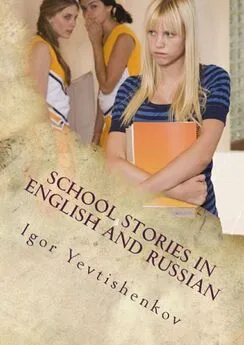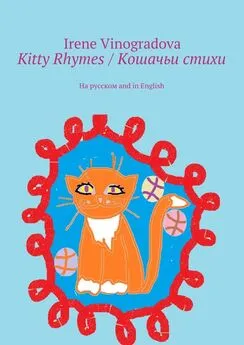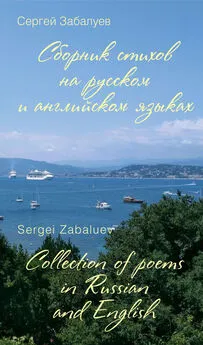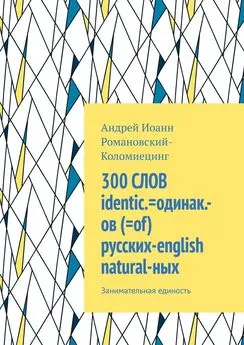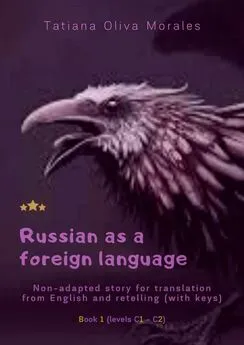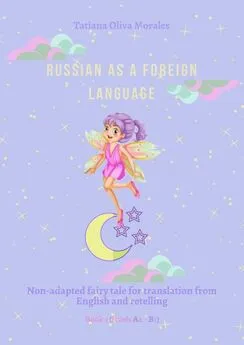Vladimir Strugovshchikov - 10 000 words identical in Russian and English. You must know Russian
- Название:10 000 words identical in Russian and English. You must know Russian
- Автор:
- Жанр:
- Издательство:неизвестно
- Год:неизвестен
- ISBN:9785005331151
- Рейтинг:
- Избранное:Добавить в избранное
-
Отзывы:
-
Ваша оценка:
Vladimir Strugovshchikov - 10 000 words identical in Russian and English. You must know Russian краткое содержание
10 000 words identical in Russian and English. You must know Russian - читать онлайн бесплатно ознакомительный отрывок
Интервал:
Закладка:
10 000 words identical in Russian and English
You must know Russian
Vladimir Strugovshchikov
© Vladimir Strugovshchikov, 2021
ISBN 978-5-0053-3115-1
Created with Ridero smart publishing system
WHAT IS THIS BOOK ABOUT
How to instantly increase your vocabulary by 10,000 words? Simply and easily. You need to use cheat codes, as «cheaters» do in computer games. That is, we need to «cheat» using cheat codes, and effortlessly improve our skills. This book is just such a cheat code. It will help you easily increase your vocabulary by 10,000 words. Cheating is good.
This book is called «10,000 words the same in Russian and English», but this book contains not only the same words in two languages, but also very similar words, as well as words that are distantly similar to each other. In some words, small changes were made in their translation to make it easier to remember the translation of a particular word. Also, in some cases, a less used version of the translation of a word is chosen, but most similar to a word in another language. Most of the words from the book are not included in the list of the top most used ones, but their knowledge will be of great help in expanding vocabulary and in learning a foreign language. The book does not contain names, surnames, geographic names, nationalities, brands, plural words, etc., but in the future, a separate book can be created for them.
I was inspired to create this book by the words of Dmitry Petrov from the TV show «English in 16 Hours» – «Want to learn 50,000 words in 1 minute?» Of course we want, who would not want to… Of course, I still cannot offer you 50,000 words, but you have the opportunity to be content with 10,000 words this very second. Each word from the book ate up a little of my time, squeezed a drop of sweat out of me and drank my blood, so please love and favor my book.
RULES FOR SIMILAR WORDS
1) Words are completely identical in spelling in both languages. For example Sport – спорт.
2) Without -а/-я. – There are about 5000 words that are translated into English, if you just remove the ending -а / -я in Russian. For example comedy – комедия.
3) А → S. – Instead of the Russian final letter «a» in English, «s» is pronounced. These are words denoting any kind of activity, a field of science or a set of tools (objects) for a similar purpose. For example physics – физика.
4) А →/ эй / – Words are similar in spelling, but differ in pronunciation. For example Date [дэйт] – дата.
5) «-ЦИЯ» (англ. -tion) → «шн». – There are up to 30,000 such words. Instead of the Russian final «tsiya», we pronounce «shn» in English. And most often in them the Russian «a» before the «tsiya» is pronounced like «ay». For example Integration [интигрэ'йшн] – интеграция.
6) «-СИЯ» (англ. -sion) → «шн» – such words up to 20,000. Instead of Russian, «sia» is pronounced «shn» in English. For example Profession [прэфэ'шн] – профессия
7) «-ГИЯ» → «джи» – such words up to 10,000. Instead of the Russian final "-gi» in English we pronounce «ji». For example Methodology [мэсэдо'лэджи] – методология
8) Г→H – there are several hundred such words. In some words, instead of the Russian «g» in English, we pronounce «h». For example Hematoma [химэ'тоума] – гематома
9) Ц→ С – there are several hundred such words. In such words, instead of the Russian «ts» in English, we pronounce «s», moreover, in English there is no sound at all [ts]. For example Pesticide [пэ'стисайд] – пестицид
10) И→АЙ – there are several hundred such words. In such words, instead of the Russian «i» in English, we pronounce «ay». For example Client [кла'йэнт] – клиент
11) Without «-НЫЙ» – there are several thousand such words. Such words in Russian with the final "-ny, -naya, -noe, -nye» can be translated into English by simply removing them. For example Effective [ифэ'ктив] – эффективный
12) «-ЧНЫЙ»/«-СКИЙ» → «-к» – Thousands of words in Russian with the endings "-chny, -chny, -chnoye, -nye» or "-ski, -skaya, -ske, -skie» are translated into English by dropping the ending "-nyy» (or "-skiy») and replacing «сh» (or «che») with «k»: it was: "– (ch) nyy» / "– (che) skiy» → it became just "-k». For example Epic [э'пик] – эпический
There are still many similar rules, for example, prefixes are added in some words, negation is added in some, various endings are added in some, etc.
PROSPECTS FOR THE BOOK’S DEVELOPMENT
Are there mistakes in this book? Of course there is, and in the long term the book will improve and the number of errors will be minimized. Some of the mistakes from previous books «5000 words identical in Russian and English», «8500 words identical in Russian and English, 5001—8500», «9000 words identical in Russian and English, 8501—9000» and «9500 words the same in Russian and English, 9001—9500 «has already been corrected, and they will no longer appear in future books.
Why only 10,000 words? 10,000 is not the limit. If we take into account names, geographic names, nationalities, brands and much more, then in the future we can collect a list of 150 thousand words. But for now, let’s not look that far.
Are there any other word lists planned? Yes of course. It is planned to compile several similar dictionaries on various topics. For example, a general dictionary for all topics with a large number of words will be compiled, as well as a separate dictionary for brands, a separate dictionary for geographic names, a separate dictionary for top words, etc.
Does this book make sense if everyone knows the words shown in the book? First, a person does not always know that a word he knows in English sounds about the same as in his native language. Secondly, in the book all similar words are collected in one place, and therefore it is convenient for their periodic repetition.
Why did you create this book at all? This book was created to simplify life and to save time.
HOW TO THANK THE AUTHOR
This book has cost me hundreds and hundreds of hours of my time spent searching, processing and standardizing similar words in Russian and English, so if you decide to help the author, I will only be glad of your support.
How can you help the author:
– You can make a small donation, and you can see how to do it here
https://www.facebook.com/groups/donationsforstrug
https://vk.com/strughelp
– You can share this book with your friends, then it will bring much more benefit to more people. You can find links to share with your friends here https://vk.com/similarwords5000
– You can just tell your friends that there is such a wonderful book with such an amazing idea that saves hundreds and hundreds of hours of your life, or you can send them an electronic version of the book.
– You can send in your own set of words that you did not find in this book, and which must be included in the next book. Or you can send a link to a wonderful site with such a set of words. Send to wall to group https://www.facebook.com/groups/similarwordsor https://vk.com/similarwords or in group messages. Everyone who will send me more than 10 words, I will mention in the next book in a separate chapter.
– You can subscribe to my group on mnemonics, where I am collecting material for another book https://www.facebook.com/groups/mnemonikaenglish or https://vk.com/mnemonikaenglish
– You can subscribe to one of my publics or YouTube channel. The list of publics can be viewed here https://vk.com/struggroups
– You can order a printed version of this book. On this issue, write here https://vk.com/vladimirstrug
– You can offer your help in my other projects. https://vk.com/strugprojects
– You can offer any other help. Write here https://vk.com/vladimirstrug
– Publics to which I ask you to subscribe:
https://www.facebook.com/groups/donationsforstrug
https://www.facebook.com/groups/mnemonikaenglish
https://vk.com/mnemonikaenglish
https://vk.com/similarwords
https://vk.com/blog_strug
https://vk.com/similarwords5000
https://vk.com/strughelp
https://vk.com/struggroups
https://vk.com/strugprojects
https://www.facebook.com/groups/similarwords
SAME WORDS
A priori [эпр: иор: ай] – априори [apriori]
Abac [«абэк] – абак [abak], счеты
Abacterial [э'бак'тэриэл] – безбактериальный [bezbakterial’nyy], безмикробный
Abacus [«абэкэс] – абак [abak], счеты
Abbacy [«эбэси] – аббатство [abbatstvo]
Abbey [а'би] – аббатство [abbatstvo]
Abbot [«абэт] – аббат [abbat], настоятель монастыря
Abbreviate [эбри»: виэйт] – использовать аббревиатуру [ispol’zovat’ abbreviaturu], сокращать
Abbreviation [э, бривие'йшэн] – аббревиатура [abbreviatura], сокращение
Abc [эйбиси] – алфавит [alfavit], азбука, букварь, основы
Abdication [,эбди'кейшэн] – абдикация [abdikatsiya] (отречение от власти, от царствования)
Abdomen [эб'дoумэн] – абдомен [abdomen] (брюшной отдел)
Aberration [,аби'рэйшн] – аберрация [aberratsiya] (отклонение от нормы)
Abnormal [аб'но: рмэл] – ненормальный [nenormal’nyy]
Abnormality [,абно: р'мал: ити] – ненормальность [nenormal’nost’], аномалия
Aboard [э'борд] – на борту [na bortu], на корабле, в вагоне
Abolitionism [,абэ'лишэ, низм] – аболиционизм [abolitsionizm] (движение за отмену рабства)
Abolitionist [,абэ'лишэ, нист] – аболиционист [abolitsionist] (представитель движения за отмену рабства)
Aboriginal [,эбэ'риджэнэл] – аборигенный [aborigennyy]
Aborigine [,эбэ'риджэни] – абориген [aborigen]
Abort [э'борт] – аборт [abort], прерывать, прерывание
Abortion [э'боршэн] – аборт [abort], абортация, прерывание
Abortionist [э'бошэнист] – абортонист [abortonist], подпольный акушер
Abortive [э'ботив] – абортивный [abortivnyy]
Abracadabra [,эбрэкэ'дэбрэ] – абракадабра [abrakadabra]
Abrasive [эбрэ'йсив] – абразив [abraziv], абразивный, сдирающий, шлифующий
Abscess [«эб, сес] – абсцесс [abstsess] (нарыв, гнойник)
Abscissa [эб'сисэ] – абсцисса [abstsissa]
Absinthe [«эбсинт (с)] – абсент [absent] (алкогольный напиток)
Absolute [э'бсэ, лут] – абсолют [absolyut], совершенство, совершенный, чистый
Absolutely [,эбсэ'лутли] – абсолютно [absolyutno]
Absolutism [эбсэлу: тизм] – абсолютизм [absolyutizm]
Читать дальшеИнтервал:
Закладка:


